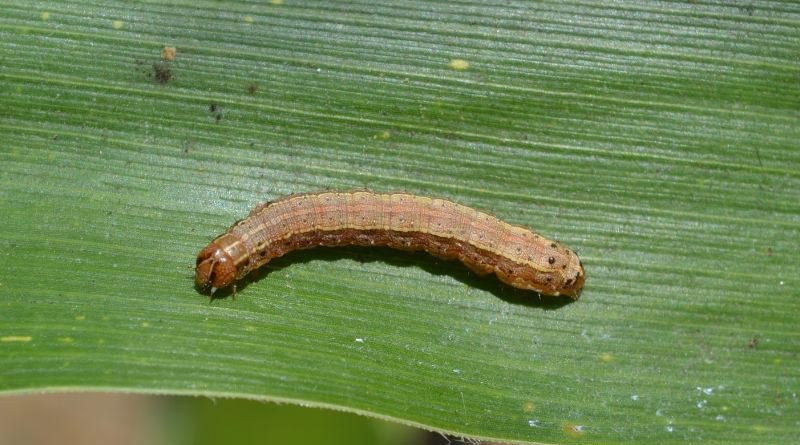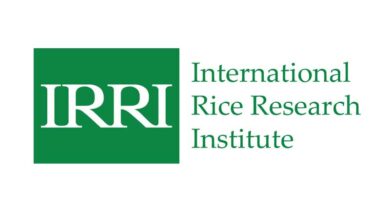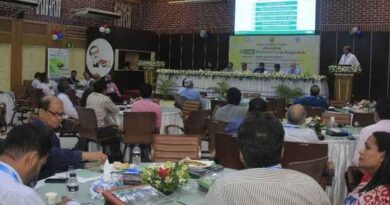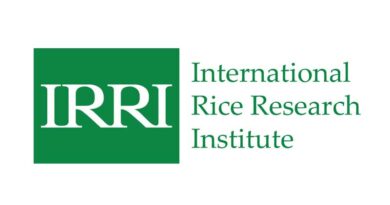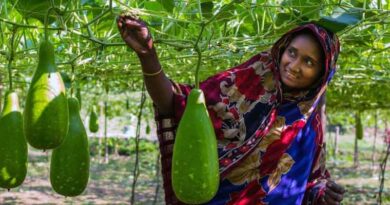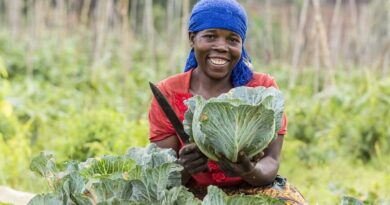Strengthening Bangladesh’s pest preparedness and management system
08 February 2024, Bangladesh: In a landmark initiative, CABI hosted a pivotal stakeholder workshop dedicated to “Strengthening the System for Pest Preparedness and Management in Bangladesh.” The workshop had two primary objectives. Firstly, to validate findings from a national pest management exercise. Secondly, to develop a roadmap to fortify Bangladesh’s pest preparedness and management system through the collaborative commitment of government representatives, researchers, NGOs, and the private sector.
The event at the Lakeshore Hotel, Dhaka, featured esteemed guests, including Chief Guest Professor Dr. Md. Giashuddin Miah, Vice-Chancellor of Bangabandhu Sheikh Mujibur Rahman Agricultural University, Special Guest Md. Tajul Islam Patwary, Director of Field Service Wing, DAE, and Md. Ashraf Uddin, Director of Plant Protection Wing, DAE.
Pest preparedness and management workshop
Dr. Md. Saleh Ahmed, CABI Country Representative, welcomed the guests. After that, Dr. Malvika Chaudhury, CABI Regional Coordinator for PlantwisePlus Asia, conducted an orientation session outlining the workshop’s objectives. Dr. Mohammad Shaef Ullah, Professor in the Department of Entomology at Bangladesh Agricultural University and lead workshop consultant, presented an overview of the country’s pest preparedness and management systems. Hideo Ishii-Adajar, CABI Junior Agricultural Economist, coordinated the group activities among the participants.
Experts in the field also delivered four specialized sector briefs. Dr. Nazneen Sultana, Professor in the Department of Plant Pathology at Sher-e-Bangla Agricultural University, discussed the pathology sector; Md. Nowsher Ali, Assistant Director at the Department of Fisheries, covered the fisheries sector; Dr. Mohammad Sayedur Rahman, Senior Scientific Officer at the Bangladesh National Herbarium, addressed the forestry sector; and Dr. Mohammad Shaef Ullah presented the entomology sector brief. Lastly, the team shared insights from a Sprockler Inquiry that gauged local perspectives on the national response to fall armyworm (FAW).
Addressing the Invasive Species Challenge
The menace of invasive species poses a significant threat to agriculture, livestock, human health, and the environment. CABI’s PlantwisePlus programme is at the forefront of addressing this challenge. Building upon a robust theoretical framework developed since 2020, CABI has expanded its research to assess the functioning of Bangladesh’s pest and invasive species management system.
Study Objectives: Bangladesh’s pest preparedness and management system
The study aims to evaluate and assess the responsiveness of Bangladesh’s pest preparedness and management system. A deep dive into the agricultural sector’s response to the FAW infestation serves as a crucial aspect, offering insights into the responsiveness and capacity of the system. The study also explores the status of invasive species management in sub-sectors like forestry, aquatic resources, and weeds, with the overarching goal of identifying opportunities for system strengthening.
National action plan
A significant outcome of the workshops was the creation of a National Action Plan, devised collaboratively by 17 institutions representing various sectors. Prioritizing prevention, detection, and control, the plan assigns tasks to key institutions, primarily government ministries, underscoring their central role in managing the invasive species system.
Crucial next steps identified by participants in the workshop for strengthening the pest preparedness and management system in Bangladesh include:
Establishment of a National Coordination Body: A multi-sectoral task force under the Ministry of Agriculture, co-managed by key actors, will oversee all national pest preparedness and management issues, focusing on strengthening quarantine and surveillance.
Capacity Building: Efforts to enhance capacity within sectors and across the country, including training on digital tools and improving diagnostic skills. Incorporating curricula on pest and invasive species management in university training is also recommended.
Infrastructure Development: Upgrading national laboratories and strengthening regional laboratories and quarantine stations.
Update Invasive Pest Lists: Regular updating of the national invasive species list, coupled with research on the impact of pests and invasives on different sectors.
Communication and Media: Launching communication campaigns to create awareness at both national and local levels, emphasizing public engagement.
Ringfencing of Finances: Allocating funds by different sectors to support various key actions, such as media campaigns, networking and collaboration, and sustainable management options for prioritized pests and invasive species.
This collaborative and comprehensive approach lays the foundation for a resilient and adaptive pest preparedness and management system in Bangladesh, ensuring a sustainable and secure future for the nation’s agriculture and ecosystems. Prof.Dr.Md. Shaefullah moderated the event, assisted by Homaira Jahan Sonom, CABI Programme Officer in Bangladesh.
Also Read: Best Agrolife to manufacture a combination of Trifloxystrobin, Thiamethoxam, and Thiophanate Methyl under the brand name Warden Extra
(For Latest Agriculture News & Updates, follow Krishak Jagat on Google News)

